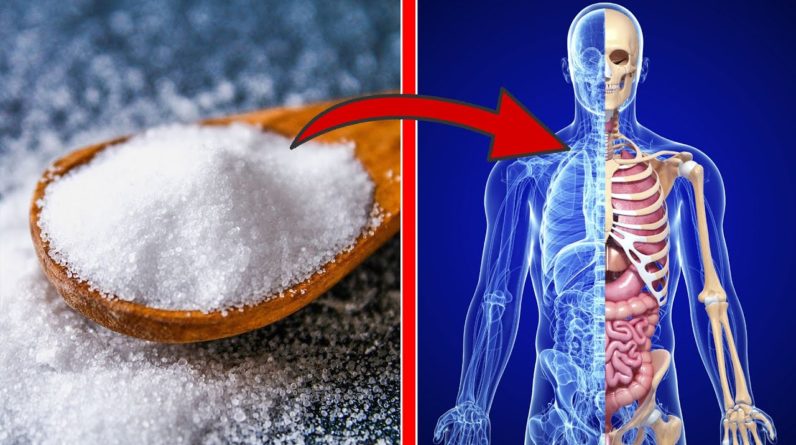
Nowadays, salt is our most important seasoning. Whether for breakfast eggs, cooking or at
the lunch table, we quickly reach for the salt shaker to add flavor to our food. But this habit can have serious consequences. Too much salt consumption can cause hypernatremia
and, over time, lead to serious health problems. We'll tell you in this video what happens
when you consume too much salt, so be sure to watch it until the end. 1. Swellings
If your rings feel a little tight, your feet are swollen, or you have puffy eyes in the
morning, you are probably eating too much salt. When your body stores extra water due to a
high salt intake, it's called edema and should be treated with a very restricted diet. 2. Excessive thirst
The sodium in salt contributes to the fluid balance in your body. When you eat too much salt, your body needs
more fluid to drain your system so your muscles and other organs can function properly. This is your body's way of correcting the
sodium-to-water ratio, and drinking water is the best way to bring it back to normal.
Remember that if you don't drink enough water,
your body may be forced to pull fluid out of your cells, which could leave you dehydrated. 3. Changes in urination
Usually, the accumulation of sodium in your body leads to serious changes in urination,
which can occur for two reasons: – When you consume a lot of salt, your kidneys
have to work overtime to remove it from the body.
This can lead to kidney disease, where urination
becomes more frequent and urine appears transparent or completely clear. – Too much sodium in your body can cause fluid
loss, which often results in dehydration. When the body loses a lot of water, urine
production decreases and becomes thick and dark yellow. 4. Painful bones
Salt consumption can be a major obstacle to a stable skeleton. If you eat too much table salt, your kidneys
can't flush it out completely, which greatly increases calcium loss. Chronic calcium deficiency can lead to weak
bones, dental problems, and even the development of osteoporosis. 5. Muscle cramps
Maintaining the proper sodium-potassium balance is critical to your health, as these chemical
elements are responsible for muscle contraction. If you upset the balance by overusing a salt
shaker or eating excessively salty foods, you may experience cramps or tension and pain
in your muscles. 6. Persistent headache
Excessive sodium consumption increases blood volume so that it takes up more space in the
blood vessels.

This expansion of the blood vessels causes
high blood pressure (hypertension) and can therefore trigger severe headaches. 7. Cognitive disorders
High blood pressure caused by high salt consumption can damage the arteries leading to your brain. This can affect your ability to think clearly
and make it difficult for you to focus on daily tasks. In addition, constant dehydration can lead
to poor memory, fatigue and slower reaction time. Therefore, watch out for these signs! Do you still want to know how drinking water
helps you lose weight? Then be sure to watch the video which we link
to you here! If you liked the video then I would be really
happy about a thumbs up.
And don't forget to subscribe to this channel
and activate the bell so you don't miss any new video!.







